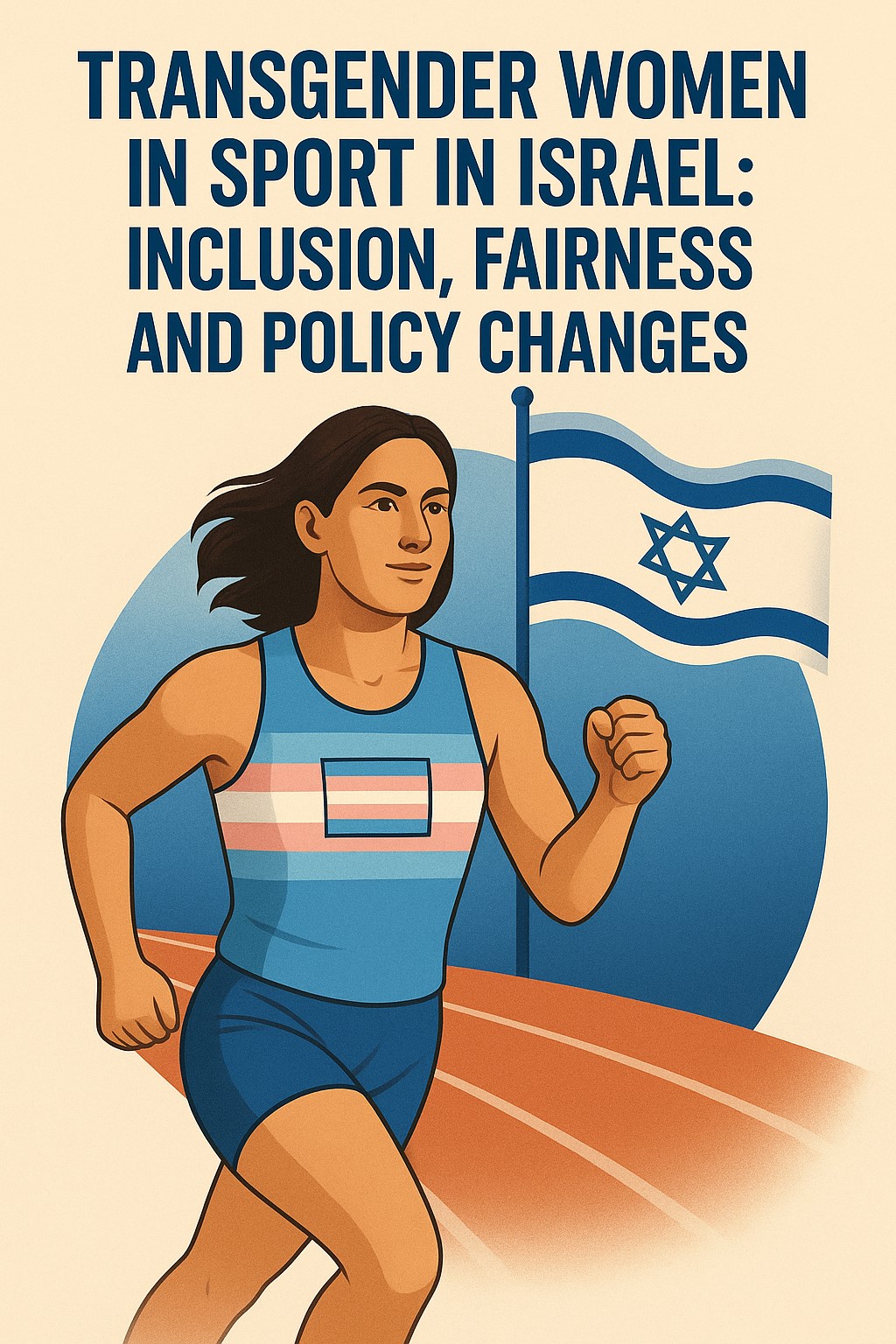TRANSGENDER WOMEN IN SPORT IN ISRAEL: INCLUSION, FAIRNESS AND POLICY CHANGES

In Israel, the participation of transgender women in sport is a topic of ongoing public and institutional discussion.
A prominent example is the case of association football referee, Sapir Berman, who made history as the first openly transgender person to officiate in the Israeli Premier League. Her transition and public announcement received both support and criticism from fans, reflecting the broader debate on gender diversity and inclusion in sport. Her case highlighted not only the challenges faced by transgender athletes and officials but also the potential for meaningful progress in visibility and acceptance. On 18 March 2025, she became the first transgender referee of a UEFA Women’s Under 17 Qualifying Match in Belfast in Northern Ireland.
The inclusion of transgender women in sport raises complex questions, particularly concerning fairness, physical safety, and the integrity of the female competition categories.
Critics argue that transgender women may retain certain physical advantages developed through male puberty, which could have an impact on fair competition in women’s sport, especially in strength-based or contact sports disciplines. Safety concerns have also been raised in this context.
On the other hand, advocates of inclusion stress the importance of ensuring that transgender individuals are not excluded from participating in sport or subjected to discrimination.
Ongoing policy discussions at the national and international levels consider potential regulatory approaches, such as the use of testosterone thresholds or other eligibility criteria aimed at striking a balance between fairness and inclusion.
From a legal and societal perspective, Israel has made significant progress in recognising the rights of transgender individuals. Israeli law allows individuals to change their legal gender without undergoing surgery, and transgender people may serve in the military under their self-identified gender. However, there may still be medical considerations in the case of intersex individuals.
Israel is widely seen as a progressive country when it comes to LGBTQI rights—same-sex marriages performed abroad are legally recognised, for instance—although homosexuality and gender nonconformity remain controversial in certain religious communities, particularly amongst ultra-Orthodox Jews.
Despite this progress, Israel currently lacks a unified national policy on the participation of transgender athletes in competitive sports. Decisions are made at the discretion of individual sports federations, such as the Israel Football Association, and are typically handled on a case-by-case basis.
These decisions are often influenced by international guidelines, including those issued by FIFA and the International Olympic Committee. Sapir Berman’s case, for example, was resolved without reference to any formal national legal framework.
There are currently no publicly accessible regulations in Israel defining eligibility standards based on factors such as hormone levels or transition duration. This regulatory gap contributes to legal and procedural uncertainty for both athletes and sports bodies.
As a result, many sports bodies in Israel are actively grappling with how to design inclusive policies that simultaneously ensure competitive fairness, particularly in women’s sports. There is a need for evidence-based policies that consider the scientific evidence on transgender athletes’ performance and potential advantages. Stakeholders—including athletes, governing bodies, medical professionals, and researchers—are increasingly involved in efforts to develop policies that respect both the rights of transgender individuals and the competitive integrity of sport.
Whilst Israel has taken meaningful steps towards recognising transgender individuals in society and public life, the participation of transgender women in sport remains an evolving area of legal and practical concern. The challenge going forward will be to build a sporting environment that is not only inclusive and rights-respecting but also fair and consistent for all participants.
For further information and advice, email Kim Gamboni at gamboni@valloni.ch.